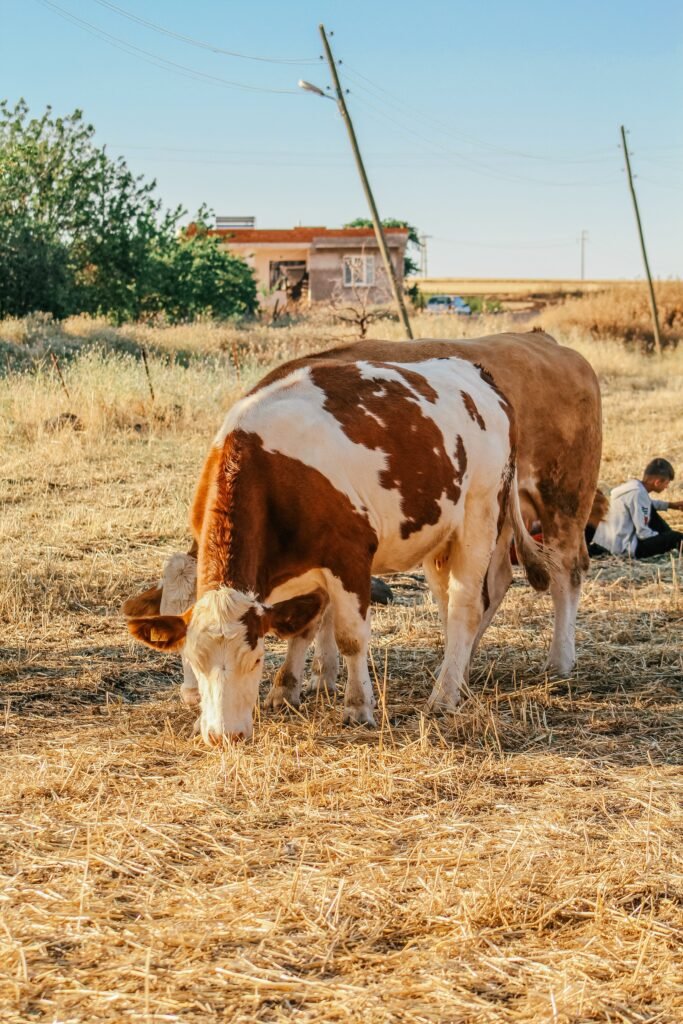
Imagine living in a bustling city where fresh produce is just a short walk away from your doorstep. With urban farming on the rise, this dream is becoming a reality for many city dwellers seeking a sustainable and healthier way of life. Yes, you heard it right! Urban farming offers a multitude of benefits that not only nourish our bodies but also help preserve the environment. From reducing food miles to promoting community engagement, this article explores the incredible advantages of urban farming for sustainable living. Let’s embark on a journey to discover how urban farming can transform our concrete jungles into green oases of abundance.

Introduction
Welcome to the world of urban farming! In this article, we will explore the numerous benefits that urban farming brings to our communities and the environment. Urban farming, also known as urban agriculture, is the practice of cultivating, processing, and distributing food in or around urban areas. By utilizing small spaces such as rooftops, balconies, and community gardens, urban farming offers a sustainable and convenient solution to support our modern way of living.

Benefits of Urban Farming
Reduced Food Miles
One of the key advantages of urban farming is the significant reduction in food miles. Food miles refer to the distance that food travels from the point of production to the consumers. By growing food in urban areas, we can eliminate the need for long-distance transportation, thus reducing carbon emissions and reliance on fossil fuels. Fresh produce can be harvested and delivered immediately to local markets or even sold directly to consumers. This not only decreases environmental impact but also ensures that you have access to fresher and more nutritious food.
Increased Food Security
Urban farming plays a crucial role in enhancing food security within communities. By producing food locally, cities become less reliant on external sources and are better equipped to withstand potential disruptions in the global food supply chain. In times of crisis or emergencies, such as natural disasters or pandemics, having a robust urban farming system in place provides a buffer against food shortages. So, when you grow your own food or support local urban farmers, you contribute to a more resilient and secure food system for everyone.
Improved Air Quality
With urbanization comes increased air pollution, posing significant health risks to residents. However, urban farming can help combat this issue by acting as natural air filters. Plants absorb carbon dioxide and release oxygen through photosynthesis, leading to improved air quality in urban areas. Moreover, urban gardens help trap and filter pollutants such as particulate matter and harmful gases, thereby reducing the overall pollution levels. By supporting urban farming initiatives, you contribute to cleaner air for yourself and the entire community.
Enhanced Community Engagement
Urban farming brings people together and fosters a sense of community pride and engagement. Community gardens and urban farms serve as gathering places for neighbors, where individuals from diverse backgrounds can come together to share knowledge, skills, and experiences. Working side by side to grow and harvest food creates opportunities for interaction and bonding, strengthening social connections and promoting a sense of belonging. Urban farming is not only about food production but also about building stronger and more connected communities.
Opportunity for Education
Urban farming provides a hands-on educational opportunity for people of all ages, especially children. By engaging in growing food, individuals gain a deeper understanding of where their food comes from and the effort required to produce it. Schools and community organizations can integrate urban farming into their curriculum or activities, allowing students to learn about various aspects of agriculture, sustainability, and environmental stewardship. This practical knowledge empowers individuals to make informed decisions about their food choices and adopt more sustainable practices in their lives.
Promotion of Biodiversity
Urban farming can serve as a haven for biodiversity in the midst of concrete jungles. By creating green spaces and planting a variety of crops, urban farms provide habitats for pollinators such as bees, butterflies, and birds. These pollinators play a crucial role in maintaining the biodiversity of our ecosystems and ensuring successful crop pollination. Additionally, urban farms can include native plant species, which support local wildlife populations and contribute to the overall ecological balance. By supporting urban farming, you actively contribute to the preservation of biodiversity in our urban environments.
Mitigation of Urban Heat Island Effect
Urban areas often experience higher temperatures compared to surrounding rural areas due to the urban heat island effect. This phenomenon is caused by the abundance of concrete, asphalt, and buildings that absorb and retain heat. However, urban farming can help mitigate this effect by providing shade and cooling benefits. The vegetation in urban farms helps to reduce surface temperatures and create a microclimate that is more favorable and comfortable for residents. By incorporating green spaces into our cities through urban farming, we can create a cooler and more sustainable urban environment.
Reduction of Household Waste
In addition to producing fresh food, urban farming offers an opportunity to recycle and reduce household waste. Organic waste such as kitchen scraps, lawn clippings, and fallen leaves can be composted and used as nutrient-rich soil amendments. By implementing composting systems and utilizing these organic resources, urban farmers can minimize waste and close the nutrient cycle. This approach not only reduces the burden on landfills but also conserves valuable resources and supports a more circular and sustainable economy.
Creation of Green Spaces
One of the most visible benefits of urban farming is the creation of green spaces in our cities. With the limited availability of land, urban farms provide a unique opportunity to transform unused or neglected spaces into vibrant and productive ecosystems. These green spaces not only enhance the aesthetic value of the urban landscape but also provide mental and physical well-being benefits to residents. Urban farms serve as oases of calm and tranquility, offering respite from the concrete jungle and promoting a healthier and more sustainable living environment.
Support for Local Economy
Urban farming contributes to the local economy by creating job opportunities and supporting local businesses. As the demand for locally grown produce increases, urban farmers can sell their products to local markets, restaurants, and individual consumers. This direct sales model eliminates the need for intermediaries, ensuring a fairer price for both the farmers and the consumers. By supporting urban farming initiatives, you help stimulate the local economy, create employment opportunities, and strengthen the food system’s sustainability within your community.
In conclusion, urban farming offers numerous benefits that contribute to a more sustainable and resilient future. From reducing food miles and improving food security to enhancing air quality and promoting biodiversity, the advantages of urban farming extend far beyond the simple act of growing food. By embracing urban farming and supporting local initiatives, we can create healthier environments, stronger communities, and a more sustainable way of life for generations to come. So, go ahead, start your own urban farm or support your local urban farmers – together, we can make a difference!








